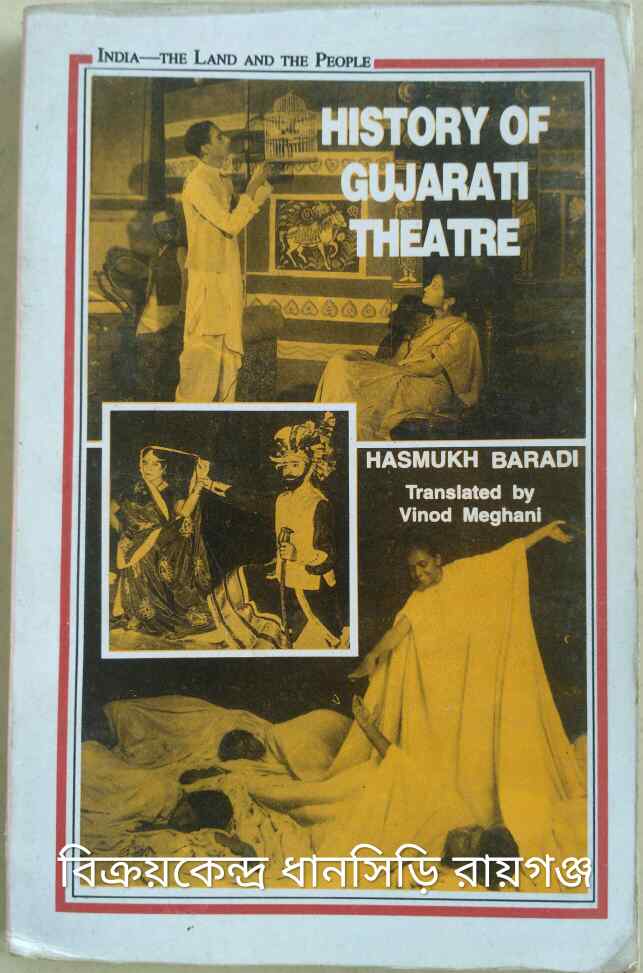Description
This work reviews and analyzes from a fresh angle the stage by stage chronicle of theatre art, theatrical trends, actor
directors, playwrights as well as theatre personalities active in the history of theatre during last century and half of Gujarati literature. That is what distinguishes this work from a history
of literary theatre. The work also includes an elaborate feature about Bhavai, the traditional (folk) theatre, and the pioneering endeavour of Parsi community for the inception of theatre in
its own tongue as well as in Gujarati. This is a very informative delineation of the emphatic impact made by politics, society, literature and theatre on one another.Hasmukh Baradi is associated with Gujarati Amateur Theatre for the last two decades. He has written plays as well as essays on theatre topics. He has also been in the forefront of the folk-oriented activity of street-play. During the period between 1990 and 1992, he was a Senior Fellow at the Department of Cultural Affairs of the Government of India.Professionally, he has devoted two decades of his career to production of TV programmes, one and half decades to the
production of radio programmes and spent considerable time for imparting media-training. He has visited Russia, Germany, England, Poland, Bulgaria and Malaysia to acquaint himself with the direction techniques employed in the theatre and TV programmes in those countries. Noteworthy among his works are ‘Natak Sarikho Nadar Hunnar’ (An exquisite craft like theatre) and Janardan Joseph (a play).This chronicle of Gujarati Theatre comprises three main periods: (1) a century and a half beginning from 1842 of what is considered to be ‘old’ theatre (2) seventy years beginning from 1922 of new Theatre activity and (3) a century and a quarter beginning from 1871 of composing and staging of one-act plays. Instead of naming any of these three spans as a ‘golden period of an individual or presenting any of them as an era dominated by one or the other ideology, each has been subdivided into phases clustered on the basis of a certain characteristic/essence/contour/approach of playwriting or staging; e.g. the Phase of Actor-dominated Theatre, the Phase of Stageability, the Phase of Creative Struggles etc. Consequently, the attitude that had played a decisive role in the playwriting and staging processes during a particular phase and its
description have emerged with clarity. Of course, at one stage or the other,different phases would seem to be either running
parallel to one another or flowing in opposite directions, when faced with this situation, the dominant trend has been chosen as the focal point of the presentation.The task of compiling our theatre history is full of difficulties even today; several efforts’ in that direction do not provide all the information; reviews of either the plays or of their stage performances had simply not been done, thus depriving us of details.




Be the first to review “History of Gujarati Theatre -Hasmukh Baradi Translated by Vinod Meghani”
You must be logged in to post a comment.